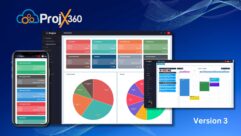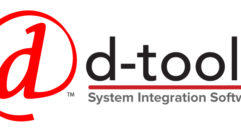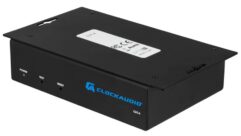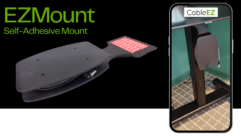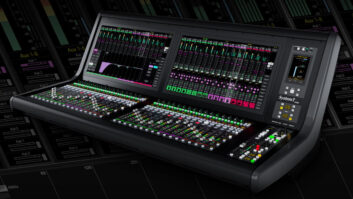
Pay-per-click Advertising
Apr 14, 2009 12:00 PM,
By Don Kreski
An alternative to optimizing your website?

Not everyone who effectively markets to search engines manages to optimize his or her website. “We have been doing pay-per-click advertising for about three years now, and it’s grown to be our number-one marketing tool,” says Martin Phillips, president of Austin, Texas-based Wireless Computing, a manufacturer of long-range wireless keyboards, mice, and presentation remote controls. “We’re pretty sure that most people who buy our products visit our website at some point. And when they do, they generally find us through our Google ads.”
The most successful web marketers use pay per click (PPC) not as an alternative, but as an addition to optimization programs. “Our most successful customers use all the options available to them,” says Tim Grant, owner and president of Chicago-based lunavista communications, which specializes in search-engine marketing. “That being said, PPC has certain advantages that make it very attractive.”
The first of these advantages, according to Grant, is speed to market. “While optimization may take weeks or even months to bear fruit, you can set up a pay-per-click account today and start bringing people to your site tomorrow,” he says.
Second, a PPC ad gives you complete control over what potential customers see in the search results, since you are crafting an advertising message instead of accepting whatever text a search engine pulls from your webpage. Third, with PPC, you can direct site visitors to specific pages on your site built to appeal to people who search for given terms.
“Pay per click is very granular,” Phillips says. “You can spend a few dollars a day all the way up to millions, and you can adjust your program daily, if necessary, to reflect your need for sales leads and your available funds.”
Pay-per-click campaigns
With most forms of advertising, you pay for the space devoted to your ad, and the results you get have no effect on your cost. But with PPC, you pay only when someone clicks through to your website. And the cost per click is determined by bid.
The amount you bid determines your position on the results page. The bids on a given term may vary from about 20 cents to several dollars per click, and only the highest eight or 10 bidder ads appear at all. Though the number of clicks may vary, you have the option to set a maximum daily budget. When you reach that number, your ads shut off for the rest of the day.
Grant says there are three factors crucial to the success of any pay-per-click campaign:
1. Keyword selection. As with natural search optimization, the terms you target will be the biggest factor in determining your success. “If you are targeting the wrong key phrases, all the rest of your work is going to be in vain,” Grant says. “There are a number of online resources [such as the Google keyword selection tool] to help you understand which terms searchers are actually using to find businesses like yours.” (See svconline.com/columns/features/searchengine_optimization_1208.)
You need to be honest about the terms that are working for you. You may want to sell more digital-signage systems, but if your website or your business is not set up to handle signage inquiries, you may not see the results you want. “You need to make adjustments if you’re paying a lot of money for clicks but closing few sales,” Grant says.
You may want to consider using more “long-tailed keywords,” he says, especially if your budget is limited. For example, the unique attribute of Wireless Computing keyboards is their 100ft. range. The company thus bids on some generic terms such as “wireless keyboard,” but also on the more targeted phrase “long-range wireless keyboard.” This long-tailed phrase brings in far fewer searchers, but those that search specifically for a long-range device are much more likely to buy the company’s products.
Pay-per-click Advertising
Apr 14, 2009 12:00 PM,
By Don Kreski
An alternative to optimizing your website?
2. Drafting the advertisements. “A very common mistake that PPC advertisers make is using the same ad copy for every keyword,” Grant says. He explains that your ad must quickly and visually connect with potential clients.
“The easiest way to make that happen is to use the search phrase itself as your headline,” he says. The ads themselves are very short. “So there’s a bit of an art in giving just enough information to lure people to your site versus the eight or 10 other ads on the page.”
Related Links

Management Perspectives: Link Management
You’ve optimized your new website. You’ve identified the keywords potential customers are likely to use in searching for someone like you. You have made…

Management Perspectives: Search-engine Optimization
You have a great website. It looks good. It works well, but it doesn’t seem to attract new business. When you type the products or services you offer…

Management Perspectives: Getting Seen and Heard
Why are case histories so useful, and so widely used, in technical industries like ours? They are useful because they give print and online readers a…
There’s also a need to clarify your offerings. The phrase “sound system” can mean anything from a car stereo to a performing arts system. You don’t really want to pay for clicks from people looking for something other than what you offer.
3. Landing pages. Once you have an ad that will attract the right customers, it should link to a page that will grab their interest. “For the best results, you need to create custom landing pages for each of the most important terms you’re targeting,” Grant says.
A good landing page will make it extremely obvious what you’re offering.
“A lot of people link all their ads to their home page,” Grant says. “Instead, you want a page with the key term in your headline, a clear, concise explanation of what you offer, and links to other sections of your site that clients will want to visit. Remember: The goal is not just getting people to your website, but getting them to act once they’ve arrived.”
Common mistakes
Grant says that he sees a lot of confusion with budgeting, especially from people who set up their own PPC campaigns. “You really need to take the time to figure out all your options,” he says. “Otherwise, you’ll see the search engines take over some of the management process. For instance, they may lower your rankings to keep you from going over your daily budget.”
Smaller advertisers tend to spread themselves too thin. Since Google alone accounts for 60 percent to 70 percent of all searches, a good strategy is to start with Google, and then consider Yahoo and MSN only after you’ve built a successful Google campaign.
Regional marketers need to be aware of their geographic targeting options. “It’s not a perfect system, but you can set up your campaign so that people only within certain ZIP codes or at a given distance from your office will see your ad,” Grant says.
Some advertisers, though, are unwilling to spend enough money to get the results they need. “All recent studies have shown people spending more time searching for new vendors on the Internet than by any other means,” Grant says. “If you want to bring in more business, you have to make an investment in your website and in search-engine marketing—whether through pay per click, optimization, link programs, or all of these.”
In tough times, many companies cut back on marketing expenditures, but that can be a big mistake. Most marketing activities are far less costly per lead than paying someone to make cold calls. If you need more sales, you need to expand your marketing program, not cut back.
Don Kreski is a marketing consultant who works exclusively in the AV industry. You can reach him at www.kreski.com/contact.html.


